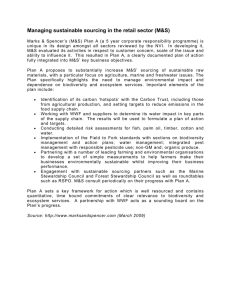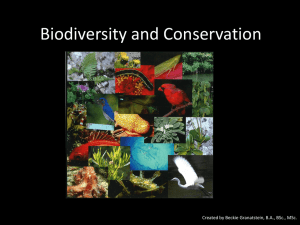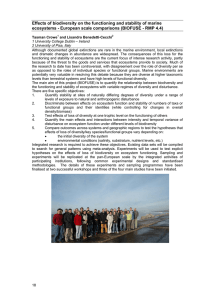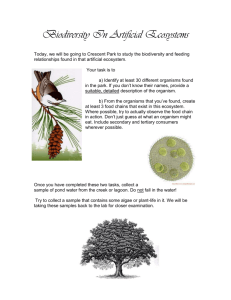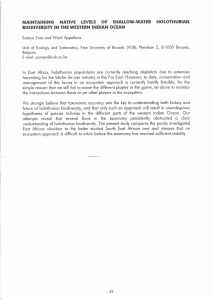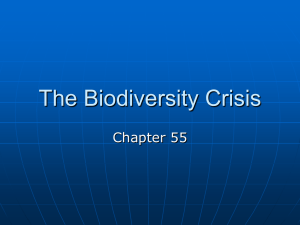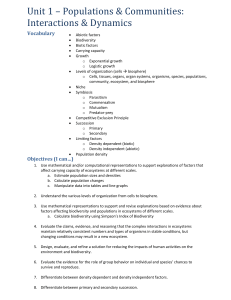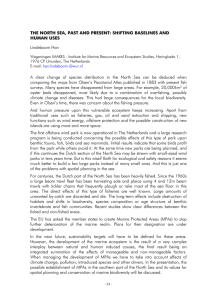Theme 3: experimental approaches and habitat restoration 6.4
advertisement
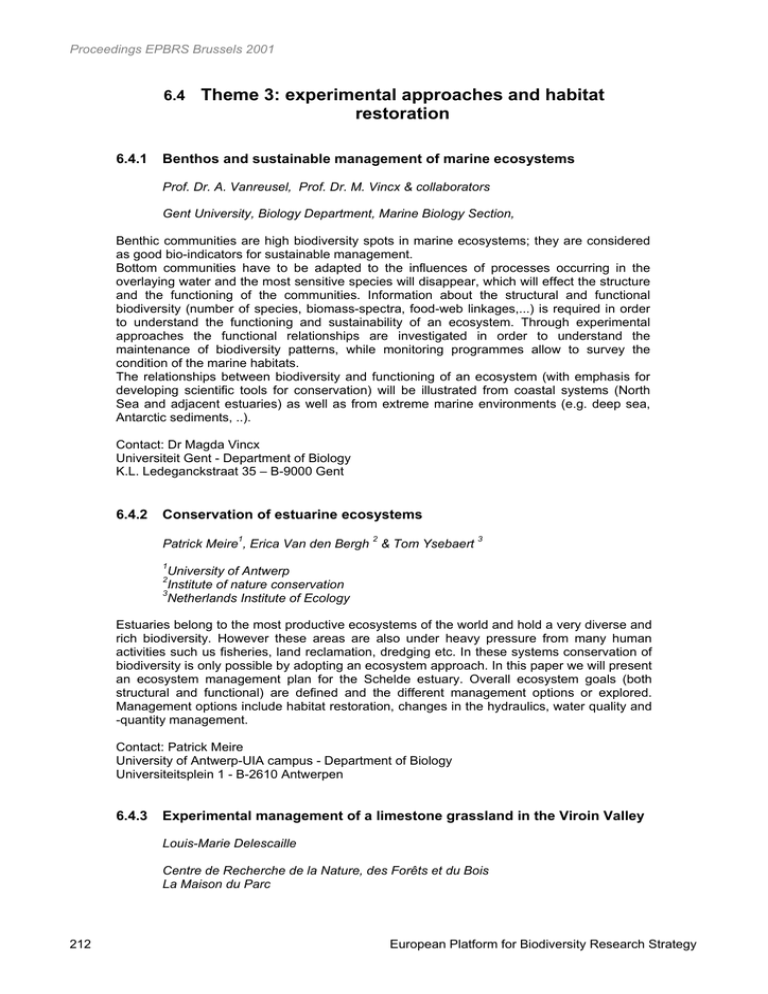
Proceedings EPBRS Brussels 2001 6.4 6.4.1 Theme 3: experimental approaches and habitat restoration Benthos and sustainable management of marine ecosystems Prof. Dr. A. Vanreusel, Prof. Dr. M. Vincx & collaborators Gent University, Biology Department, Marine Biology Section, Benthic communities are high biodiversity spots in marine ecosystems; they are considered as good bio-indicators for sustainable management. Bottom communities have to be adapted to the influences of processes occurring in the overlaying water and the most sensitive species will disappear, which will effect the structure and the functioning of the communities. Information about the structural and functional biodiversity (number of species, biomass-spectra, food-web linkages,...) is required in order to understand the functioning and sustainability of an ecosystem. Through experimental approaches the functional relationships are investigated in order to understand the maintenance of biodiversity patterns, while monitoring programmes allow to survey the condition of the marine habitats. The relationships between biodiversity and functioning of an ecosystem (with emphasis for developing scientific tools for conservation) will be illustrated from coastal systems (North Sea and adjacent estuaries) as well as from extreme marine environments (e.g. deep sea, Antarctic sediments, ..). Contact: Dr Magda Vincx Universiteit Gent - Department of Biology K.L. Ledeganckstraat 35 – B-9000 Gent 6.4.2 Conservation of estuarine ecosystems Patrick Meire1, Erica Van den Bergh 2 & Tom Ysebaert 3 1 University of Antwerp Institute of nature conservation 3 Netherlands Institute of Ecology 2 Estuaries belong to the most productive ecosystems of the world and hold a very diverse and rich biodiversity. However these areas are also under heavy pressure from many human activities such us fisheries, land reclamation, dredging etc. In these systems conservation of biodiversity is only possible by adopting an ecosystem approach. In this paper we will present an ecosystem management plan for the Schelde estuary. Overall ecosystem goals (both structural and functional) are defined and the different management options or explored. Management options include habitat restoration, changes in the hydraulics, water quality and -quantity management. Contact: Patrick Meire University of Antwerp-UIA campus - Department of Biology Universiteitsplein 1 - B-2610 Antwerpen 6.4.3 Experimental management of a limestone grassland in the Viroin Valley Louis-Marie Delescaille Centre de Recherche de la Nature, des Forêts et du Bois La Maison du Parc 212 European Platform for Biodiversity Research Strategy

